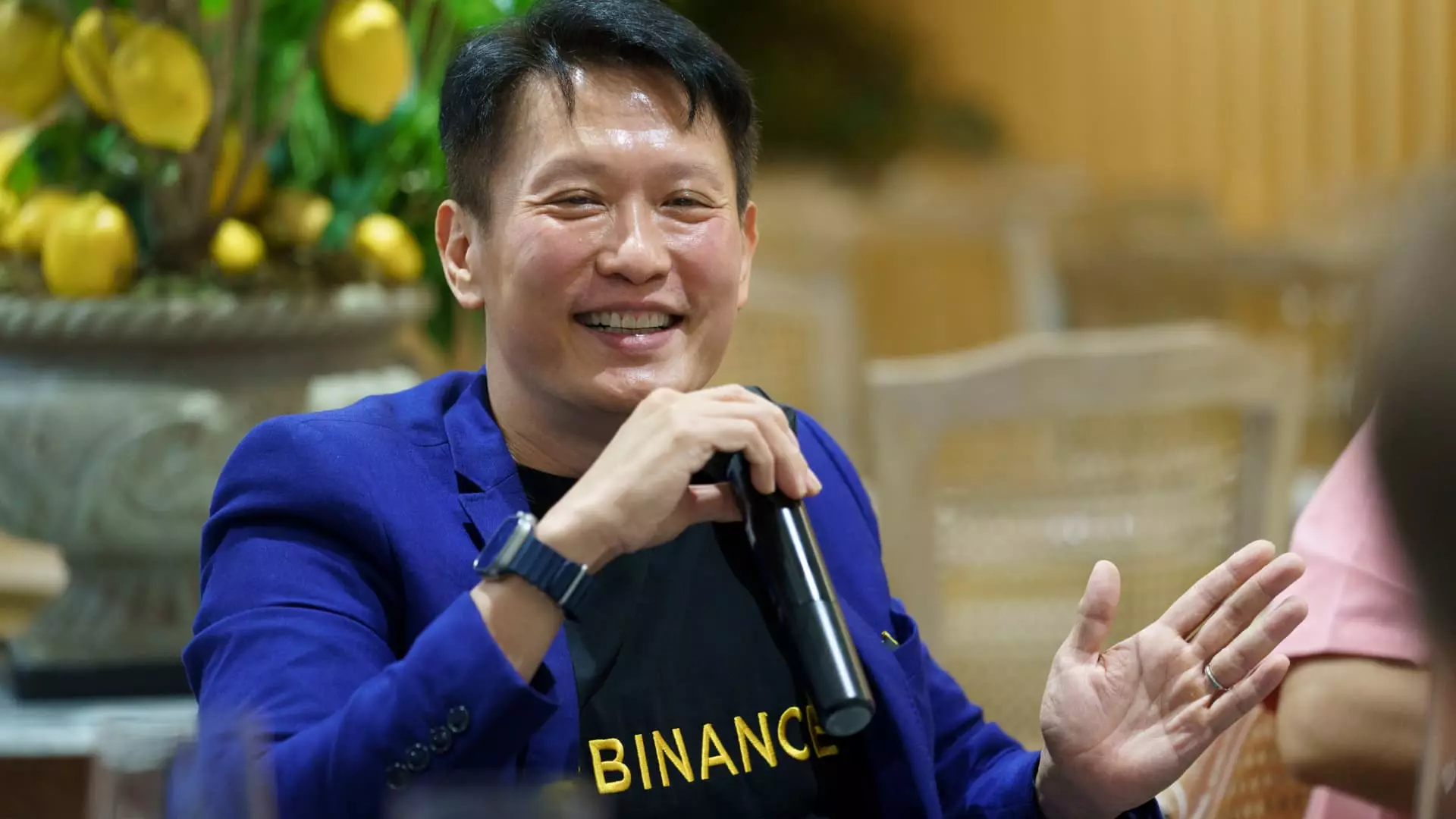Under the leadership of CEO Richard Teng, Binance has undergone a remarkable transformation in the landscape of cryptocurrency, moving from a pariah in political circles to a potential key player under the Trump administration. The shift marks a significant change from the past few years, during which the industry faced heightened regulatory scrutiny and mistrust, commonly referred to as “Operation Choke Point 2.0.” This strategy was marked by allegations that banks restricted access to services for digital asset firms amid a broader government crackdown spearheaded by the Biden administration. However, as Teng pointed out, this trajectory has taken a dramatic turn.
Under the current administration, the atmosphere has become much more favorable for crypto enterprises. Teng has expressed that the environment is distinctly “pro-crypto,” a sentiment that many in the industry share, sensing a newfound acceptance that could revolutionize the market’s expansion. This political reset represents not just an opportunity for Binance but for the entire cryptocurrency ecosystem to redefine its relations with regulators and government entities.
From Isolation to Integration: Binance’s New Strategy
Binance’s shifting strategy is evident as it explores collaborations with influential entities, including potential investment from the Trump family. Reports indicate discussions around bringing significant financial backing into the company, alongside partnerships geared toward introducing products like a dollar-pegged stablecoin. Such maneuvers signify a reinvention of Binance, moving it from a defensive position to one seeking strategic alliances that can bolster its standing in both crypto and traditional finance.
The development indicates a broader acceptance of cryptocurrency as an integral part of the financial landscape, as evidenced by the fact that Binance now holds licenses in 21 jurisdictions worldwide. This geographical expansion signifies an impressive effort not only to mitigate regulatory pressure but also to explore untapped markets where the appetite for crypto doesn’t match the regulatory hostility seen in others. The level of interest being shown by various governments in collaboration speaks volumes about the potential for cryptocurrency in a future economy.
Compliance: Acknowledging Past Mistakes
Under Teng’s leadership, there has been a clear acknowledgment of Binance’s tumultuous past, especially regarding compliance issues. The former founder and CEO, Changpeng “CZ” Zhao, faced severe legal repercussions that have since set a tone of caution and vigilance within the organization. As part of its restructuring, Binance is now investing heavily in compliance, employing over 1,300 professionals focused on adhering to regulations—an impressive quarter of its total workforce.
Teng’s candid admission that “we under-invested in compliance in those very early days” demonstrates a willingness to learn from past mistakes. However, while this shift towards compliance is a step in the right direction, it is essential to recognize the complexities this presents. Market participants are still wary of Binance due to its previous issues; actions speak louder than words, and the firm must continually prove its reliability and legitimacy in the long run.
Sustaining Market Dominance Amid Rivalries
Despite the increasing scrutiny and competitive pressure from entities like Coinbase, Teng remains confident in Binance’s sustained position in the market. He asserts that the exchange consistently captures more than 40% of the global market share, an impressive feat that indicates established dominance. Teng’s confident projection that the advent of exchange-traded funds (ETFs) can ultimately lead more users toward direct crypto trading further advocates the long-term potential for Binance’s growth. The continuous operation of Binance, untroubled by market hours like traditional financial platforms, underscores its appeal to consumers looking for flexibility and agility in trading.
This confidence is emboldened by partnerships that entrench Binance deeper into the fabric of traditional finance, such as the recent $2 billion deal with Emirati state-owned investment firm MGX. This move, framed as a merger between crypto and AI, opens doors to additional funding avenues and technological advancements that could keep Binance at the forefront of innovation.
Challenges: A Look Ahead
While the future appears brighter for Binance, challenges remain. The recent imprisonment of key compliance officers in Nigeria highlights the risks the organization faces in certain jurisdictions. Although Teng advocates for a cooperative relationship with global regulatory bodies, confrontations with local regulations remain a hurdle that Binance must navigate. The duality of their operational presence—both regulatory clean-up and strategic expansion—will ultimately dictate their success and longevity in the competitive landscape of cryptocurrency.
As the cryptocurrency sphere evolves, Binance, under Teng’s leadership, is positioned to leverage newfound opportunities that the current political climate offers while being cautious of its past. With continual investments in compliance and a push toward symbiotic relationships with traditional financial systems, Binance might indeed be charting a path not just to survive but to thrive in this rapidly changing world. The potential to redefine its narrative from that of a rogue player to a compliant and responsible entity could lead to a resounding success story within the cryptocurrency revolution.

